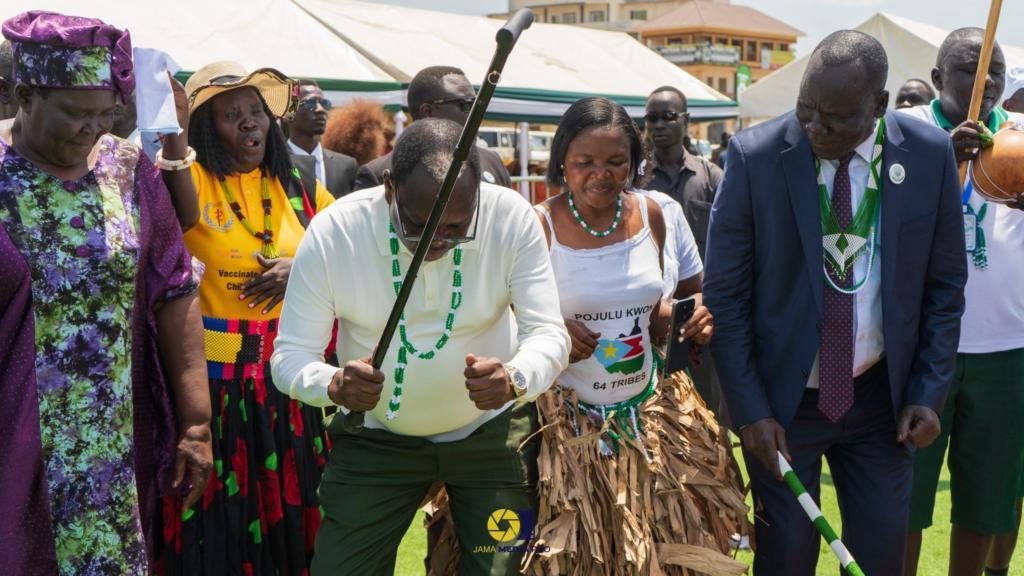Africa-Press – South-Sudan. The Chairman of the Pojulu Community has hailed the Pojulu Cultural Festival as a powerful symbol of unity, cultural pride, and national peace, calling on young people to build bridges with other communities and revive the spirit of togetherness in South Sudan.
Speaking during the official opening at the 2nd annual Pojulu Cultural Festival on Saturday, May 10, Dr. Martin Elia Lomuro urged South Sudanese youth to embrace culture as a pathway to peace, unity, and cross-community solidarity.
“As young people in Pojulu, this is the way we have to follow to attract our brothers and other tribes to support us when we need each other,” Dr. Lomuro said during a vibrant celebration marked by traditional dances, intergenerational performances, and cultural showcases.
He emphasized that culture is not meant to divide but to connect people, stressing that the festival is a platform to strengthen ties not only among Pojulu but with neighboring tribes such as the Kakwa, Kuku, Bari, and Nyangwara.
“This is a tribute not only to the people of Pojulu but to the world. Today, even people in China, India, and Israel are talking about Pojulu. Culture has made us visible,” he added, highlighting the growing presence of Pojulu culture on social media platforms like TikTok.
The Pojulu Cultural Festival, which started as a simple idea in 2024, has grown into a significant event that draws people from diverse backgrounds, reconnects generations, and uplifts community identity.
According to Dr. Lomuro, the effort behind the celebration—from fundraising to planning—demonstrates the community’s spirit of sacrifice, responsibility, and unity.
“This is what peace looks like. When you see people from different tribes sitting together, smiling, dancing, and sharing meals, you realize culture has the power to unite beyond tribe and politics,” he said.
Dr. Lomuro also acknowledged the participation of South Sudanese in the diaspora—in countries like Australia, the U.S., and the U.K.—who celebrated in solidarity with those back home.
He noted that the festival has sent a strong message to the world that South Sudan is not only surviving but thriving through culture, peace, and community spirit.
Looking ahead, he announced plans to host the next edition of the festival in Sharjoub, reiterating that Pojulu culture is a celebration of South Sudan’s unity and peace.
“Our ancestors fought for a South Sudan that is not just independent but peaceful and prosperous. Now it is our duty to carry forward that vision—not through war, but through culture, education, and mutual respect,” he said.
Dr. Lomuro concluded with a call to action: to teach children their cultural heritage, to continue inter-tribal collaboration, and to ensure that Pojulu and South Sudanese identities thrive for generations.
“This is the role of culture. It raises the spirit, promotes peace, and preserves who we are. We must teach it, live it, and pass it on.”
For More News And Analysis About South-Sudan Follow Africa-Press






